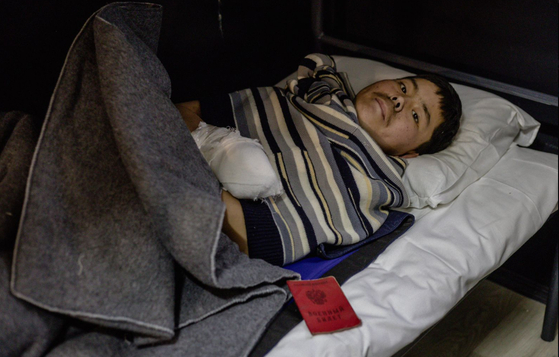Civic groups advocating human rights in North Korea sent an open letter to Ukrainian President Volodymyr Zelensky on Thursday, urging him not to repatriate North Korean soldiers captured by Ukraine while fighting for Russia.
The letter was signed by several pro-North Korean human rights groups, including the Citizens’ Alliance for North Korean Human Rights (NKHR) and Mulmangcho, after Zelensky released several video clips in recent weeks showing two captured North Korean soldiers under interrogation.
Earlier this month, Zelensky revealed that Ukraine had captured two wounded North Korean soldiers in Russia’s western Kursk region and released video clips in which one of them stated that he wanted to stay in Ukraine.
Zelensky has also said that Ukraine is prepared to hand over captured North Korean soldiers in exchange for Ukrainian captives held in Russia.

In the letter, the civic groups urged Zelensky to refrain from disclosing information regarding the soldiers’ identities or repatriating them to Russia or North Korea against their will.
The groups also cited the International Committee of the Red Cross’s interpretation of the Geneva Conventions, arguing that if the repatriation of a prisoner of war is in clear violation of international law on the protection of people, the holding party is allowed to provide asylum to them.
North Korean troops who surrender to the enemy, along with their families, are often likely to face severe punishments as “traitors,” they argued.
The groups also requested Zelensky to gather and document evidence of atrocities committed by Russia and North Korea against North Korean soldiers in order to pursue a war crime or human rights violation case.
Yonhap




